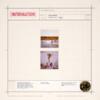
screamingacrossthesky
-
Posts
31 -
Joined
-
Last visited
-
Days Won
1
Reputation Activity
-
 screamingacrossthesky got a reaction from balea in So You've Been Waitlisted, Now What?
screamingacrossthesky got a reaction from balea in So You've Been Waitlisted, Now What?
Fair point, sugilite. All I was trying to say was simply that I didn't do any of bpilgrim's excellent suggestions and I was still accepted off of waitlists. Based on my admittedly anecdotal evidence, I just wanted to reassure people that it wasn't absolutely necessary (though I'm sure it could be helpful!) to send updates and further expressions of interest in order to be accepted. Not to discourage any from following that strategy, but just to reassure those who might not feel comfortable reaching out directly (as I know I would not have been).
-
 screamingacrossthesky got a reaction from balea in So You've Been Waitlisted, Now What?
screamingacrossthesky got a reaction from balea in So You've Been Waitlisted, Now What?
Hi waitlisters!
First off, congrats! When I got waitlisted at a number of programs during my application season, I felt like I wasn't quite good enough. However, I now realize that is silly and if you are competitive enough to get on a waitlist, then you are competitive enough to be accepted. There are so many other factors that can define that fine line between acceptance and waitlist, so you shouldn't feel at all lesser.
Second, while I commend bpilgrim89 on this effort and am happy to hear that it ended up working out so well, I just wanted to say that I indeed sat on my ass and waited and got off the waitlist at more than one top 10 program. This is not to denigrate that effort, especially if you know that your number one program is somewhere that you are waitlisted, but to assert that it is very possible to get off a waitlist without this type of follow up.
Last, if you can, still go to the visit weekend(s). If you haven't been offered an invitation, ask if you can still attend or even visit another time (and definitely ask for funding for the visit, but if at all possible, I'd recommend trying to visit even if the money doesn't come through--though I totally recognize that this will often not be possible). A visit weekend is a great way to track down things like the rumors about hires/folks leaving/what it is like to work with a certain advisor/etc., assert your interest in the program and learn about the waitlist, and just get a feel for the positives and negatives of being a student in certain program and in a certain area. While this might not be true for everybody, I found the visits very helpful and ended up changing where I thought I wanted to go.
Best of luck to all of you! While it obviously won't always work out, many schools--even top programs--end up drawing from their waitlists, so keep the hope alive!
-
 screamingacrossthesky got a reaction from bpilgrim89 in So You've Been Waitlisted, Now What?
screamingacrossthesky got a reaction from bpilgrim89 in So You've Been Waitlisted, Now What?
Hi waitlisters!
First off, congrats! When I got waitlisted at a number of programs during my application season, I felt like I wasn't quite good enough. However, I now realize that is silly and if you are competitive enough to get on a waitlist, then you are competitive enough to be accepted. There are so many other factors that can define that fine line between acceptance and waitlist, so you shouldn't feel at all lesser.
Second, while I commend bpilgrim89 on this effort and am happy to hear that it ended up working out so well, I just wanted to say that I indeed sat on my ass and waited and got off the waitlist at more than one top 10 program. This is not to denigrate that effort, especially if you know that your number one program is somewhere that you are waitlisted, but to assert that it is very possible to get off a waitlist without this type of follow up.
Last, if you can, still go to the visit weekend(s). If you haven't been offered an invitation, ask if you can still attend or even visit another time (and definitely ask for funding for the visit, but if at all possible, I'd recommend trying to visit even if the money doesn't come through--though I totally recognize that this will often not be possible). A visit weekend is a great way to track down things like the rumors about hires/folks leaving/what it is like to work with a certain advisor/etc., assert your interest in the program and learn about the waitlist, and just get a feel for the positives and negatives of being a student in certain program and in a certain area. While this might not be true for everybody, I found the visits very helpful and ended up changing where I thought I wanted to go.
Best of luck to all of you! While it obviously won't always work out, many schools--even top programs--end up drawing from their waitlists, so keep the hope alive!
-
 screamingacrossthesky got a reaction from mustmatatus in So You've Been Waitlisted, Now What?
screamingacrossthesky got a reaction from mustmatatus in So You've Been Waitlisted, Now What?
Fair point, sugilite. All I was trying to say was simply that I didn't do any of bpilgrim's excellent suggestions and I was still accepted off of waitlists. Based on my admittedly anecdotal evidence, I just wanted to reassure people that it wasn't absolutely necessary (though I'm sure it could be helpful!) to send updates and further expressions of interest in order to be accepted. Not to discourage any from following that strategy, but just to reassure those who might not feel comfortable reaching out directly (as I know I would not have been).
-
 screamingacrossthesky got a reaction from magnegresswrites in So You've Been Waitlisted, Now What?
screamingacrossthesky got a reaction from magnegresswrites in So You've Been Waitlisted, Now What?
Hi waitlisters!
First off, congrats! When I got waitlisted at a number of programs during my application season, I felt like I wasn't quite good enough. However, I now realize that is silly and if you are competitive enough to get on a waitlist, then you are competitive enough to be accepted. There are so many other factors that can define that fine line between acceptance and waitlist, so you shouldn't feel at all lesser.
Second, while I commend bpilgrim89 on this effort and am happy to hear that it ended up working out so well, I just wanted to say that I indeed sat on my ass and waited and got off the waitlist at more than one top 10 program. This is not to denigrate that effort, especially if you know that your number one program is somewhere that you are waitlisted, but to assert that it is very possible to get off a waitlist without this type of follow up.
Last, if you can, still go to the visit weekend(s). If you haven't been offered an invitation, ask if you can still attend or even visit another time (and definitely ask for funding for the visit, but if at all possible, I'd recommend trying to visit even if the money doesn't come through--though I totally recognize that this will often not be possible). A visit weekend is a great way to track down things like the rumors about hires/folks leaving/what it is like to work with a certain advisor/etc., assert your interest in the program and learn about the waitlist, and just get a feel for the positives and negatives of being a student in certain program and in a certain area. While this might not be true for everybody, I found the visits very helpful and ended up changing where I thought I wanted to go.
Best of luck to all of you! While it obviously won't always work out, many schools--even top programs--end up drawing from their waitlists, so keep the hope alive!
-
 screamingacrossthesky got a reaction from ardina in Best English or Performance Studies MA Programs: Dance and English
screamingacrossthesky got a reaction from ardina in Best English or Performance Studies MA Programs: Dance and English
Not MA options (and not UK), but if you are also thinking about a PhD, you might look up Nadia Ellis at Berkeley--especially her work on the Jamaican dance hall and a recent piece in Genders on dance in New Orleans. You might also consider a program like Stanford's MTL, which would allow you access to their TAPS faculty as well as English. My only contribution for MAs might be to look for people doing disability studies (which I think is a growing field in rhet/comp?, which are more often funded MAs), since I think that could intersect with your interest in physicality and captivity in interesting ways. Good luck, hope you find a great fit!
-
 screamingacrossthesky got a reaction from BlinkedyLight in Literature Interview Tips and Tricks
screamingacrossthesky got a reaction from BlinkedyLight in Literature Interview Tips and Tricks
As I bet you all know, very few English programs interview (and Columbia is historically not one of them, Caien). Sometimes a professor will informally contact a student, but only a couple of programs interview their whole short list. Off the top of my head, Chicago and Duke Literature (but not English) have interviewed in the past few years, and I think but might be mistaken that Emory and Notre Dame do as well? It does change, though--Stanford used to and doesn't anymore, Chicago didn't and does now. I am not sure about Comp Lit, though, since I didn't apply--it is my general impression that interviews are more common in that field, in particular to test language skills.
However, I did have one interview last season. Quite honestly: it was nerve-wracking; I don't think that it went very well; I was admitted anyway.
The interview questions were entirely based on my writing sample and the substantive proposal in my SoP. If I were to give any advice, it would be to be extremely familiar with the material in these documents, as well as research beyond what was expressly mentioned but would inform your field of proposed interest. Although that probably sounds ridiculous now when it feels like you could never not know these intimately, in over a month, when you are maybe taking other classes and definitely focusing on other things, putting in the work to really refamiliarize yourself with those documents and the research that you did to generate them will pay off. The tip that I received (and did not do, but realized too late was a great idea) is to make a couple reminder notes to yourself on post-its and put them around your computer screen (since it will likely be a Skype interview with 2-3 profs). If you are stressed and start to panic, even one word that sets you off in the right direction can be helpful. If you are really worried and don't think it would be too much of an imposition, you might ask a recommender who is familiar with your application to compose a few relevant questions, or even try to do this yourself. Be as relaxed and as confident as you can, know that you can answer questions somewhat cagily to direct the conversation toward surer ground, and don't worry too much-- they are just trying to get to know you and what you want to study as well as they can in 20-30 minutes!
-
 screamingacrossthesky got a reaction from cypressknee in Literature Interview Tips and Tricks
screamingacrossthesky got a reaction from cypressknee in Literature Interview Tips and Tricks
Sure. We received an email to sign up for an interview. As I mentioned, mine was a Skype interview, although I think some schools still have interview weekends (Notre Dame?); mine was with two professors from the department--I have no idea if they were on the admission committee or not, they didn't mention it either way--although I heard about interviews with three professors and even a whole panel at another school. They would not have been my potential advisors, but were in tangential fields and were able to ask very knowledgable and informed (read: intimidatingly specific and thoughtful) questions about my area of interest and writing sample, so I do not think it is entirely random, but is instead dictated by some combination of field and schedule.
The interview, as I wrote, was entirely questions about my writing sample and proposed project/field of interest more generally, except when I had the opportunity to pose questions to them--another part that you could prep in advance. I don't want to get into too many details on a public forum, and every interview is different based on who is interviewing, but mine, at least, was entirely substantive and quite challenging. For example, I was asked about specific authors/texts and theorists in my field that weren't expressly mentioned in my writing sample/SoP, but names that I should have known.
Again, however, I really think that this is so dependent on your specific interviewers and potentially the specific school's format that making any generalizations from one anecdotal piece of evidence isn't very wise. Just brush up on what you already know, be honest about what you don't--you aren't expected to know everything, they know we are all just embarking on this crazy adventure--and do the best you can. Like I said, I'm pretty sure that I botched it and it all worked out okay anyway. Like all aspects of your application, this is just one part of the whole.
-
 screamingacrossthesky got a reaction from DBear in Literature Interview Tips and Tricks
screamingacrossthesky got a reaction from DBear in Literature Interview Tips and Tricks
As I bet you all know, very few English programs interview (and Columbia is historically not one of them, Caien). Sometimes a professor will informally contact a student, but only a couple of programs interview their whole short list. Off the top of my head, Chicago and Duke Literature (but not English) have interviewed in the past few years, and I think but might be mistaken that Emory and Notre Dame do as well? It does change, though--Stanford used to and doesn't anymore, Chicago didn't and does now. I am not sure about Comp Lit, though, since I didn't apply--it is my general impression that interviews are more common in that field, in particular to test language skills.
However, I did have one interview last season. Quite honestly: it was nerve-wracking; I don't think that it went very well; I was admitted anyway.
The interview questions were entirely based on my writing sample and the substantive proposal in my SoP. If I were to give any advice, it would be to be extremely familiar with the material in these documents, as well as research beyond what was expressly mentioned but would inform your field of proposed interest. Although that probably sounds ridiculous now when it feels like you could never not know these intimately, in over a month, when you are maybe taking other classes and definitely focusing on other things, putting in the work to really refamiliarize yourself with those documents and the research that you did to generate them will pay off. The tip that I received (and did not do, but realized too late was a great idea) is to make a couple reminder notes to yourself on post-its and put them around your computer screen (since it will likely be a Skype interview with 2-3 profs). If you are stressed and start to panic, even one word that sets you off in the right direction can be helpful. If you are really worried and don't think it would be too much of an imposition, you might ask a recommender who is familiar with your application to compose a few relevant questions, or even try to do this yourself. Be as relaxed and as confident as you can, know that you can answer questions somewhat cagily to direct the conversation toward surer ground, and don't worry too much-- they are just trying to get to know you and what you want to study as well as they can in 20-30 minutes!
-
 screamingacrossthesky got a reaction from TeaOverCoffee in Literature Interview Tips and Tricks
screamingacrossthesky got a reaction from TeaOverCoffee in Literature Interview Tips and Tricks
As I bet you all know, very few English programs interview (and Columbia is historically not one of them, Caien). Sometimes a professor will informally contact a student, but only a couple of programs interview their whole short list. Off the top of my head, Chicago and Duke Literature (but not English) have interviewed in the past few years, and I think but might be mistaken that Emory and Notre Dame do as well? It does change, though--Stanford used to and doesn't anymore, Chicago didn't and does now. I am not sure about Comp Lit, though, since I didn't apply--it is my general impression that interviews are more common in that field, in particular to test language skills.
However, I did have one interview last season. Quite honestly: it was nerve-wracking; I don't think that it went very well; I was admitted anyway.
The interview questions were entirely based on my writing sample and the substantive proposal in my SoP. If I were to give any advice, it would be to be extremely familiar with the material in these documents, as well as research beyond what was expressly mentioned but would inform your field of proposed interest. Although that probably sounds ridiculous now when it feels like you could never not know these intimately, in over a month, when you are maybe taking other classes and definitely focusing on other things, putting in the work to really refamiliarize yourself with those documents and the research that you did to generate them will pay off. The tip that I received (and did not do, but realized too late was a great idea) is to make a couple reminder notes to yourself on post-its and put them around your computer screen (since it will likely be a Skype interview with 2-3 profs). If you are stressed and start to panic, even one word that sets you off in the right direction can be helpful. If you are really worried and don't think it would be too much of an imposition, you might ask a recommender who is familiar with your application to compose a few relevant questions, or even try to do this yourself. Be as relaxed and as confident as you can, know that you can answer questions somewhat cagily to direct the conversation toward surer ground, and don't worry too much-- they are just trying to get to know you and what you want to study as well as they can in 20-30 minutes!
-
 screamingacrossthesky got a reaction from Yanaka in Literature Interview Tips and Tricks
screamingacrossthesky got a reaction from Yanaka in Literature Interview Tips and Tricks
Sure. We received an email to sign up for an interview. As I mentioned, mine was a Skype interview, although I think some schools still have interview weekends (Notre Dame?); mine was with two professors from the department--I have no idea if they were on the admission committee or not, they didn't mention it either way--although I heard about interviews with three professors and even a whole panel at another school. They would not have been my potential advisors, but were in tangential fields and were able to ask very knowledgable and informed (read: intimidatingly specific and thoughtful) questions about my area of interest and writing sample, so I do not think it is entirely random, but is instead dictated by some combination of field and schedule.
The interview, as I wrote, was entirely questions about my writing sample and proposed project/field of interest more generally, except when I had the opportunity to pose questions to them--another part that you could prep in advance. I don't want to get into too many details on a public forum, and every interview is different based on who is interviewing, but mine, at least, was entirely substantive and quite challenging. For example, I was asked about specific authors/texts and theorists in my field that weren't expressly mentioned in my writing sample/SoP, but names that I should have known.
Again, however, I really think that this is so dependent on your specific interviewers and potentially the specific school's format that making any generalizations from one anecdotal piece of evidence isn't very wise. Just brush up on what you already know, be honest about what you don't--you aren't expected to know everything, they know we are all just embarking on this crazy adventure--and do the best you can. Like I said, I'm pretty sure that I botched it and it all worked out okay anyway. Like all aspects of your application, this is just one part of the whole.
-
 screamingacrossthesky got a reaction from steve3020 in Literature Interview Tips and Tricks
screamingacrossthesky got a reaction from steve3020 in Literature Interview Tips and Tricks
Sure. We received an email to sign up for an interview. As I mentioned, mine was a Skype interview, although I think some schools still have interview weekends (Notre Dame?); mine was with two professors from the department--I have no idea if they were on the admission committee or not, they didn't mention it either way--although I heard about interviews with three professors and even a whole panel at another school. They would not have been my potential advisors, but were in tangential fields and were able to ask very knowledgable and informed (read: intimidatingly specific and thoughtful) questions about my area of interest and writing sample, so I do not think it is entirely random, but is instead dictated by some combination of field and schedule.
The interview, as I wrote, was entirely questions about my writing sample and proposed project/field of interest more generally, except when I had the opportunity to pose questions to them--another part that you could prep in advance. I don't want to get into too many details on a public forum, and every interview is different based on who is interviewing, but mine, at least, was entirely substantive and quite challenging. For example, I was asked about specific authors/texts and theorists in my field that weren't expressly mentioned in my writing sample/SoP, but names that I should have known.
Again, however, I really think that this is so dependent on your specific interviewers and potentially the specific school's format that making any generalizations from one anecdotal piece of evidence isn't very wise. Just brush up on what you already know, be honest about what you don't--you aren't expected to know everything, they know we are all just embarking on this crazy adventure--and do the best you can. Like I said, I'm pretty sure that I botched it and it all worked out okay anyway. Like all aspects of your application, this is just one part of the whole.
-
 screamingacrossthesky got a reaction from steve3020 in Literature Interview Tips and Tricks
screamingacrossthesky got a reaction from steve3020 in Literature Interview Tips and Tricks
As I bet you all know, very few English programs interview (and Columbia is historically not one of them, Caien). Sometimes a professor will informally contact a student, but only a couple of programs interview their whole short list. Off the top of my head, Chicago and Duke Literature (but not English) have interviewed in the past few years, and I think but might be mistaken that Emory and Notre Dame do as well? It does change, though--Stanford used to and doesn't anymore, Chicago didn't and does now. I am not sure about Comp Lit, though, since I didn't apply--it is my general impression that interviews are more common in that field, in particular to test language skills.
However, I did have one interview last season. Quite honestly: it was nerve-wracking; I don't think that it went very well; I was admitted anyway.
The interview questions were entirely based on my writing sample and the substantive proposal in my SoP. If I were to give any advice, it would be to be extremely familiar with the material in these documents, as well as research beyond what was expressly mentioned but would inform your field of proposed interest. Although that probably sounds ridiculous now when it feels like you could never not know these intimately, in over a month, when you are maybe taking other classes and definitely focusing on other things, putting in the work to really refamiliarize yourself with those documents and the research that you did to generate them will pay off. The tip that I received (and did not do, but realized too late was a great idea) is to make a couple reminder notes to yourself on post-its and put them around your computer screen (since it will likely be a Skype interview with 2-3 profs). If you are stressed and start to panic, even one word that sets you off in the right direction can be helpful. If you are really worried and don't think it would be too much of an imposition, you might ask a recommender who is familiar with your application to compose a few relevant questions, or even try to do this yourself. Be as relaxed and as confident as you can, know that you can answer questions somewhat cagily to direct the conversation toward surer ground, and don't worry too much-- they are just trying to get to know you and what you want to study as well as they can in 20-30 minutes!
-
 screamingacrossthesky got a reaction from AnimeChic101! in Literature Interview Tips and Tricks
screamingacrossthesky got a reaction from AnimeChic101! in Literature Interview Tips and Tricks
As I bet you all know, very few English programs interview (and Columbia is historically not one of them, Caien). Sometimes a professor will informally contact a student, but only a couple of programs interview their whole short list. Off the top of my head, Chicago and Duke Literature (but not English) have interviewed in the past few years, and I think but might be mistaken that Emory and Notre Dame do as well? It does change, though--Stanford used to and doesn't anymore, Chicago didn't and does now. I am not sure about Comp Lit, though, since I didn't apply--it is my general impression that interviews are more common in that field, in particular to test language skills.
However, I did have one interview last season. Quite honestly: it was nerve-wracking; I don't think that it went very well; I was admitted anyway.
The interview questions were entirely based on my writing sample and the substantive proposal in my SoP. If I were to give any advice, it would be to be extremely familiar with the material in these documents, as well as research beyond what was expressly mentioned but would inform your field of proposed interest. Although that probably sounds ridiculous now when it feels like you could never not know these intimately, in over a month, when you are maybe taking other classes and definitely focusing on other things, putting in the work to really refamiliarize yourself with those documents and the research that you did to generate them will pay off. The tip that I received (and did not do, but realized too late was a great idea) is to make a couple reminder notes to yourself on post-its and put them around your computer screen (since it will likely be a Skype interview with 2-3 profs). If you are stressed and start to panic, even one word that sets you off in the right direction can be helpful. If you are really worried and don't think it would be too much of an imposition, you might ask a recommender who is familiar with your application to compose a few relevant questions, or even try to do this yourself. Be as relaxed and as confident as you can, know that you can answer questions somewhat cagily to direct the conversation toward surer ground, and don't worry too much-- they are just trying to get to know you and what you want to study as well as they can in 20-30 minutes!
-
 screamingacrossthesky got a reaction from Dr. Old Bill in Literature Interview Tips and Tricks
screamingacrossthesky got a reaction from Dr. Old Bill in Literature Interview Tips and Tricks
As I bet you all know, very few English programs interview (and Columbia is historically not one of them, Caien). Sometimes a professor will informally contact a student, but only a couple of programs interview their whole short list. Off the top of my head, Chicago and Duke Literature (but not English) have interviewed in the past few years, and I think but might be mistaken that Emory and Notre Dame do as well? It does change, though--Stanford used to and doesn't anymore, Chicago didn't and does now. I am not sure about Comp Lit, though, since I didn't apply--it is my general impression that interviews are more common in that field, in particular to test language skills.
However, I did have one interview last season. Quite honestly: it was nerve-wracking; I don't think that it went very well; I was admitted anyway.
The interview questions were entirely based on my writing sample and the substantive proposal in my SoP. If I were to give any advice, it would be to be extremely familiar with the material in these documents, as well as research beyond what was expressly mentioned but would inform your field of proposed interest. Although that probably sounds ridiculous now when it feels like you could never not know these intimately, in over a month, when you are maybe taking other classes and definitely focusing on other things, putting in the work to really refamiliarize yourself with those documents and the research that you did to generate them will pay off. The tip that I received (and did not do, but realized too late was a great idea) is to make a couple reminder notes to yourself on post-its and put them around your computer screen (since it will likely be a Skype interview with 2-3 profs). If you are stressed and start to panic, even one word that sets you off in the right direction can be helpful. If you are really worried and don't think it would be too much of an imposition, you might ask a recommender who is familiar with your application to compose a few relevant questions, or even try to do this yourself. Be as relaxed and as confident as you can, know that you can answer questions somewhat cagily to direct the conversation toward surer ground, and don't worry too much-- they are just trying to get to know you and what you want to study as well as they can in 20-30 minutes!
-
 screamingacrossthesky got a reaction from angel_kaye13 in Literature Interview Tips and Tricks
screamingacrossthesky got a reaction from angel_kaye13 in Literature Interview Tips and Tricks
As I bet you all know, very few English programs interview (and Columbia is historically not one of them, Caien). Sometimes a professor will informally contact a student, but only a couple of programs interview their whole short list. Off the top of my head, Chicago and Duke Literature (but not English) have interviewed in the past few years, and I think but might be mistaken that Emory and Notre Dame do as well? It does change, though--Stanford used to and doesn't anymore, Chicago didn't and does now. I am not sure about Comp Lit, though, since I didn't apply--it is my general impression that interviews are more common in that field, in particular to test language skills.
However, I did have one interview last season. Quite honestly: it was nerve-wracking; I don't think that it went very well; I was admitted anyway.
The interview questions were entirely based on my writing sample and the substantive proposal in my SoP. If I were to give any advice, it would be to be extremely familiar with the material in these documents, as well as research beyond what was expressly mentioned but would inform your field of proposed interest. Although that probably sounds ridiculous now when it feels like you could never not know these intimately, in over a month, when you are maybe taking other classes and definitely focusing on other things, putting in the work to really refamiliarize yourself with those documents and the research that you did to generate them will pay off. The tip that I received (and did not do, but realized too late was a great idea) is to make a couple reminder notes to yourself on post-its and put them around your computer screen (since it will likely be a Skype interview with 2-3 profs). If you are stressed and start to panic, even one word that sets you off in the right direction can be helpful. If you are really worried and don't think it would be too much of an imposition, you might ask a recommender who is familiar with your application to compose a few relevant questions, or even try to do this yourself. Be as relaxed and as confident as you can, know that you can answer questions somewhat cagily to direct the conversation toward surer ground, and don't worry too much-- they are just trying to get to know you and what you want to study as well as they can in 20-30 minutes!
-
 screamingacrossthesky got a reaction from poliscar in Letter of Recommendation Quandary - Should I ask my boss for a letter...?
screamingacrossthesky got a reaction from poliscar in Letter of Recommendation Quandary - Should I ask my boss for a letter...?
Just a few thoughts. First, although a professional letter will be less helpful than an academic reference, you might still want to ask your boss just in case you aren't able to track down another professor to write your third letter in time. I know that programs will not consider an application at all without the required number of letters. Second, if you decide to reach out to undergrad professors, you might try to find your old papers (and especially any papers with their comments) to include with your request (along with your current SoP and writing sample). Then, even if they don't remember you at first, they would at least have something substantive on which to comment. Last, in reaching out to any of the other professors you are considering (and I agree with ExponentialDecay to stop pursuing the elusive third professor), you might want to mention that you thought that you had a third recommendation already lined up and it fell through, so they don't think that you just procrastinated and are now asking for a favor at the last minute. This might make them more inclined to help. Best of luck!
-
 screamingacrossthesky got a reaction from AnimeChic101! in Conferences?
screamingacrossthesky got a reaction from AnimeChic101! in Conferences?
https://call-for-papers.sas.upenn.edu
-
 screamingacrossthesky got a reaction from __________________________ in Conferences?
screamingacrossthesky got a reaction from __________________________ in Conferences?
https://call-for-papers.sas.upenn.edu
-
 screamingacrossthesky got a reaction from rising_star in Conferences?
screamingacrossthesky got a reaction from rising_star in Conferences?
https://call-for-papers.sas.upenn.edu
-
 screamingacrossthesky got a reaction from Dr. Old Bill in Conferences?
screamingacrossthesky got a reaction from Dr. Old Bill in Conferences?
https://call-for-papers.sas.upenn.edu
-
 screamingacrossthesky got a reaction from Ramus in Conferences?
screamingacrossthesky got a reaction from Ramus in Conferences?
https://call-for-papers.sas.upenn.edu
-
 screamingacrossthesky got a reaction from AnimeChic101! in I Bombed the Subject Test. Now What?
screamingacrossthesky got a reaction from AnimeChic101! in I Bombed the Subject Test. Now What?
Sounds like a great plan, and I'm sure that you'll be able to pull that score up after earning your MA. Good luck!
-
 screamingacrossthesky got a reaction from sarabethke in I Bombed the Subject Test. Now What?
screamingacrossthesky got a reaction from sarabethke in I Bombed the Subject Test. Now What?
Whether or not you decide not to retake the subject test, it might be worth thinking about retaking the GRE general (if you have the time and the money). An 80th percentile on the verbal section is, I think, rather low for applying for English PhDs, and (unlike the subject test) I have heard that some schools use the verbal score as a way to make the first cut of applicants.
-
 screamingacrossthesky got a reaction from Dr. Old Bill in Confusion on English MA programs
screamingacrossthesky got a reaction from Dr. Old Bill in Confusion on English MA programs
I agree that funding is a very important factor, but I think that MA programs also gain "prestige" through their PhD program placement. It is worth asking schools for that information if it is not available on their website (only, of course, if you are thinking about going onto a PhD, otherwise it might be worth asking what fields/positions that their MAs have entered post-graduation, if they know).
Usually people are using the nomenclature "unranked" casually to refer to an MA at a school either without a PhD program or with one that is not ranked in the top-whatever number of USN&WR schools. Some schools, like Georgetown, do not have a PhD program and therefore their MAs may (arguably) receive more attention from the faculty, another "prestige" factor. If you are not hoping/planning to go onto a PhD program, however, then an MA from a big name school with a top ranked PhD program might be more helpful in whatever field you are thinking about entering than a funded MA from an "unranked" school (even if those MA programs have a mixed reputation within the academy).
However, of course, just like for PhDs, it is also important to consider the professors in your field, both as potential advisors/mentors (will they help you to do your best work?) and, if you are going on, as recommenders (how much weight will their recommendation carry when/if you apply to PhD programs?). A school with a prestigious reputation (either as an MA or PhD program) might not be the best fit with your interests/goals.
Figuring out what you want from your MA program might help you to prioritize these factors (and others!) and figure out a list of the best schools for you.





.thumb.jpg.10c687382b14b659fcfb828585d448de.jpg)





